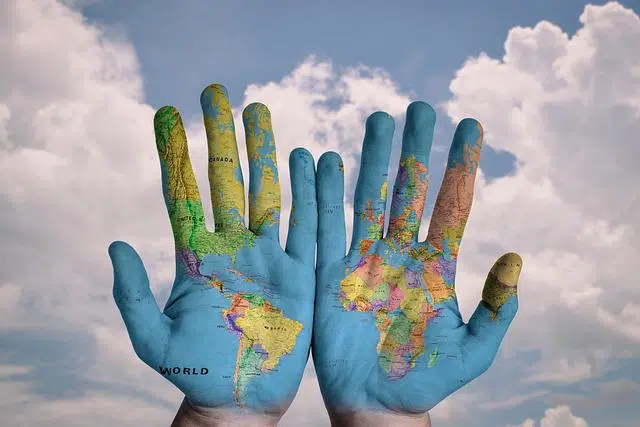
Political geography analyzes how states and human beings are organized and distributed on the surface of the planet.
Before entering fully into the meaning of the term political geography , we are going to proceed to discover the etymological origin of the two words that give it shape:
-Geography derives from Greek. Specifically, it is the result of the sum of three lexical components of said language: the noun “ge”, which means “land”; the verb “grapho”, which is synonymous with “draw” or “write”; and the suffix “-ia”, which is used to indicate a relationship.
-Politics, on the other hand, also emanates from Greek. In its case, it comes from the noun “polis”, which can be translated as “city”. What's more, it is considered that its origin may be in the expression “politiké techne”, which means “the art of citizens”.
What is political geography
The science that is dedicated to describing our planet is called geography . According to its specific object of study, there are various branches of geography, each focused on different issues.
Political geography is the specialization of geography that studies the organization and distribution of human beings and States on the earth's surface . In other words, this division of geography analyzes how the territory is distributed based on the space occupied by man.

Political geography studies the administrative division of the territory.
Field of study
The field of study of political geography is very broad and covers government systems, political processes, territorial organization and state institutions, among other issues. At a general level, it can be stated that political geography investigates political events based on geographical factors, taking into account their influence on the functioning of the State .
In this way, it is dedicated to the study of the relationships established between people, the State and the territory , considering the effects caused by political power on space . That is why its interests include the internal organization of each State and the territorial conflicts that occur between different countries.
The State, education and political geography
The State , in short, is the entity that regulates the use of geographical space by people. Political geography can focus on different levels of analysis, since state control can be carried out on a local or regional, national and international dimension. It is the State that acts as a mediator between the forces in conflict and can promote the disintegration or cohesion of a territory.
In the same way, we have to establish that this term is widely used within the field of education. Thus, for example, when students study the political geography map of Spain in their school or institute, what they do is learn both the autonomous communities that make up it and their capitals, as well as the most significant provinces and cities.
It is important to know that, sometimes, political geography is often confused with geopolitics. However, they are different things. Thus, the first understands the State as a static entity, the second perceives it as a dynamic entity, hence it studies in depth from its birth to its growth, passing through the dynamics it has and even the evolution it is having.
